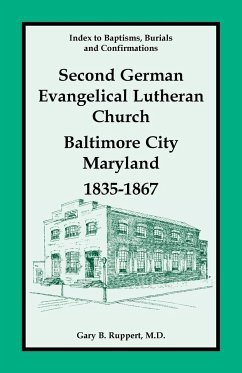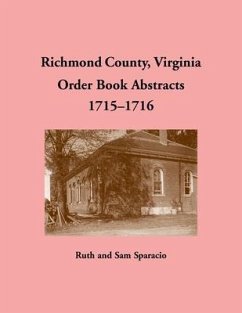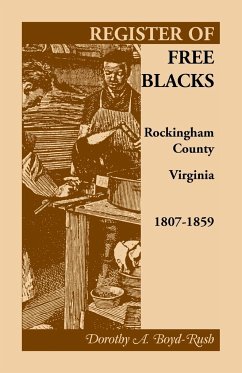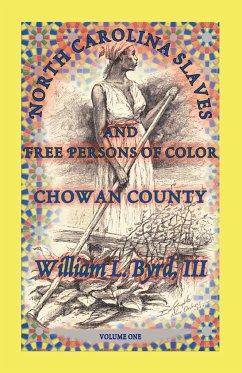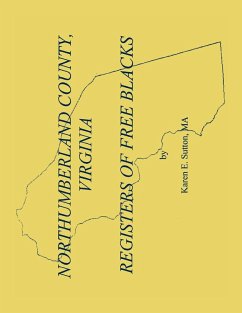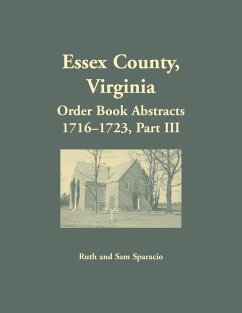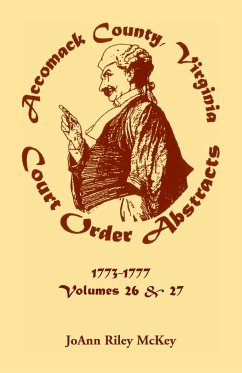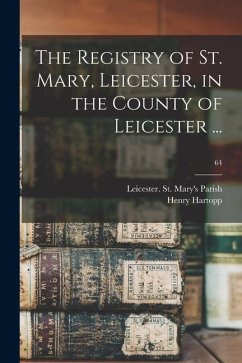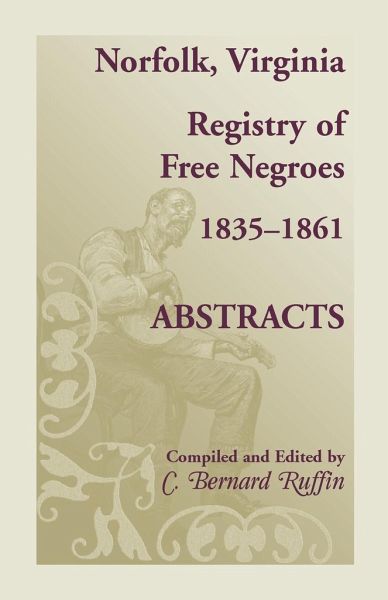
Norfolk, Virginia Registry of Free Negroes, 1835-1861, Abstracts
Versandkostenfrei!
Versandfertig in 1-2 Wochen
22,99 €
inkl. MwSt.

PAYBACK Punkte
11 °P sammeln!
In 1793 the Virginia General Assembly, concerned that large numbers of people of color were hiring themselves out, claiming to be free when in fact they were slaves, passed a law "to restrain the practice of negroes going at large." This law required all free Negroes and Mulattoes to register with the clerk of the court where they lived. Registration was required once a year within the Commonwealth's independent cities, such as Richmond, Norfolk and Charlottesville; every three years for those residing in counties such as Fairfax, James City or the Isle of Wight. Failure to present registratio...
In 1793 the Virginia General Assembly, concerned that large numbers of people of color were hiring themselves out, claiming to be free when in fact they were slaves, passed a law "to restrain the practice of negroes going at large." This law required all free Negroes and Mulattoes to register with the clerk of the court where they lived. Registration was required once a year within the Commonwealth's independent cities, such as Richmond, Norfolk and Charlottesville; every three years for those residing in counties such as Fairfax, James City or the Isle of Wight. Failure to present registration papers would result in imprisonment as a runaway slave. The registers that exist for the city of Norfolk were prepared between 1835 and 1861 (the first year of the Civil War), and record vital information for approximately 600 men, women, and children. This valuable data has been abstracted and arranged alphabetically by the registrant's surname (if available). Six categories of information have been abstracted from the registers: approximate date of birth, description of physical features, manner of manumission, date or dates of registration, and date "ordered to be registered." Other pertinent information is included for some individuals. A final section of the book describes the plight of thirteen free people who were hauled into court in the early 1830s, for failing to leave the state within the twelve month period following their emancipation (as required by law).






